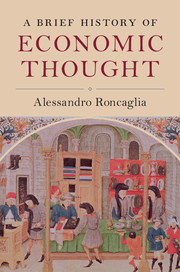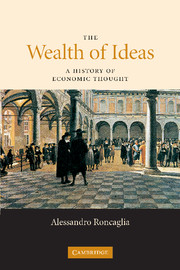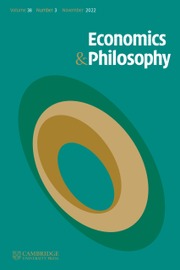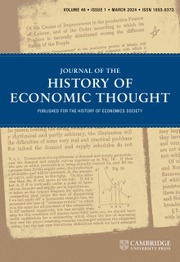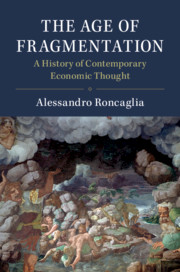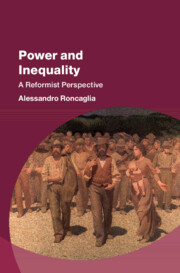A Brief History of Economic Thought
The evolution of economic thought can be traced back from its beginnings in classical antiquity up to the present day. In this book, Professor Alessandro Roncaglia offers a clear, concise and updated version of his award-winning The Wealth of Ideas, studying the development of economic thought through perspectives and debates on the economy and society over time. With chapters on prominent economic theorists, including William Petty, Karl Marx, and John Maynard Keynes, as well as on other important figures and key debates of each period, Roncaglia critically evaluates the foundations of the marginalist–neoclassical (scarcity–utility) approach in comparison to the Classical–Keynes approach. A comprehensive guide to the history of economic thought, this book will be of value not only to undergraduate and postgraduate students studying economic thought, but also to any readers desiring to study how economics has evolved up to the present day.
- As a shortened and updated version of The Wealth of Ideas, it offers an accessible, clear and concise introduction to the history of economic thought, without complex mathematics, ideal for both the specialist and general reader
- Clarifies the basic differences between the various approaches to economics, making it ideal as an introduction to the field
- Provides an original contribution to the debates on the foundations of economics, allowing readers to develop their own opinions on various debates and perspectives
Reviews & endorsements
Advance praise: 'In this very lucid and concise book, Roncaglia takes us from the beginning of economic thought in classical antiquity right through to the contemporary scene. The main ideas are both clearly explained and connected by a narrative thread. The book is recommended reading for anyone who wants to find out about the fascinating history of economics, and that should include all economists.' Donald Gillies, University College London
Advance praise: 'This brief history of economic thought succeeds in combining conciseness with scholarly, informed and clear presentation, tracing the evolution of multifarious concepts and the various hypotheses on which they are based. It masterfully guides the reader along the entire timespan of the subject, from its prehistory to recent and contemporary developments.' Maria Cristina Marcuzzo, Sapienza, Università di Roma
'HET [history of economic thought] brings to light multiple sources (and authorities) relating to various ideas which acts as a powerful antidote to the dominant monoculture in economics teaching and research.' Alex M. Thomas, Artha Vijnana
Product details
September 2017Paperback
9781316627365
320 pages
228 × 152 × 17 mm
0.46kg
Available
Table of Contents
- 1. Introduction: the history of economic thought and its role
- 2. The prehistory of political economy
- 3. William Petty and the origins of political economy
- 4. From body politic to economic tables
- 5. Adam Smith
- 6. Economic science at the time of the French Revolution
- 7. David Ricardo
- 8. The Ricardians and the decline of Ricardianism
- 9. Karl Marx
- 10. The Marginalist Revolution: the subjective theory of value
- 11. The Austrian school and its neighbourhood
- 12. General economic equilibrium
- 13. Alfred Marshall
- 14. John Maynard Keynes
- 15. Joseph Schumpeter
- 16. Piero Sraffa
- 17. The age of disgregation.

